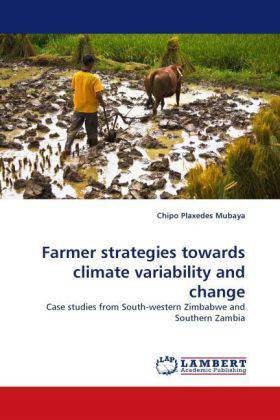
- Afhalen na 1 uur in een winkel met voorraad
- Gratis thuislevering in België vanaf € 30
- Ruim aanbod met 7 miljoen producten
- Afhalen na 1 uur in een winkel met voorraad
- Gratis thuislevering in België vanaf € 30
- Ruim aanbod met 7 miljoen producten
Zoeken
Farmer strategies towards climate variability and change
Case studies from South-western Zimbabwe and Southern Zambia
Chipo Plaxedes Mubaya
Paperback | Engels
€ 107,45
+ 214 punten
Omschrijving
While adaptation and coping with climate variability and change have become key themes in current global climate discussions and policy initiatives, literature on coping as distinct from adaptation appears to be still limited, with literature making reference to adaptation broadly. In view of this, research was conducted in Zimbabwe and Zambia to build an understanding on farmers' perceptions of risk, analyze impacts from climatic variability and change and identify coping and adaptation strategies to climate variability and change. The qualitative approach formed the basis of the study, particularly through Participatory methods. While farmers are aware of climate change and variability and have subsequently started to employ strategies to deal with these changes, they tend to assign contribution of multiple stressors to climate change. Impacts from climate change include reduction in crop yields, socio-economic impacts, changes in availability of fresh water and health related problems. The need to capitalize on local benefits from climate change is emphasized in this book
Specificaties
Betrokkenen
- Auteur(s):
- Uitgeverij:
Inhoud
- Aantal bladzijden:
- 372
- Taal:
- Engels
Eigenschappen
- Productcode (EAN):
- 9783843374422
- Verschijningsdatum:
- 21/11/2010
- Uitvoering:
- Paperback
- Afmetingen:
- 150 mm x 220 mm
- Gewicht:
- 544 g

Alleen bij Standaard Boekhandel
+ 214 punten op je klantenkaart van Standaard Boekhandel
Beoordelingen
We publiceren alleen reviews die voldoen aan de voorwaarden voor reviews. Bekijk onze voorwaarden voor reviews.








